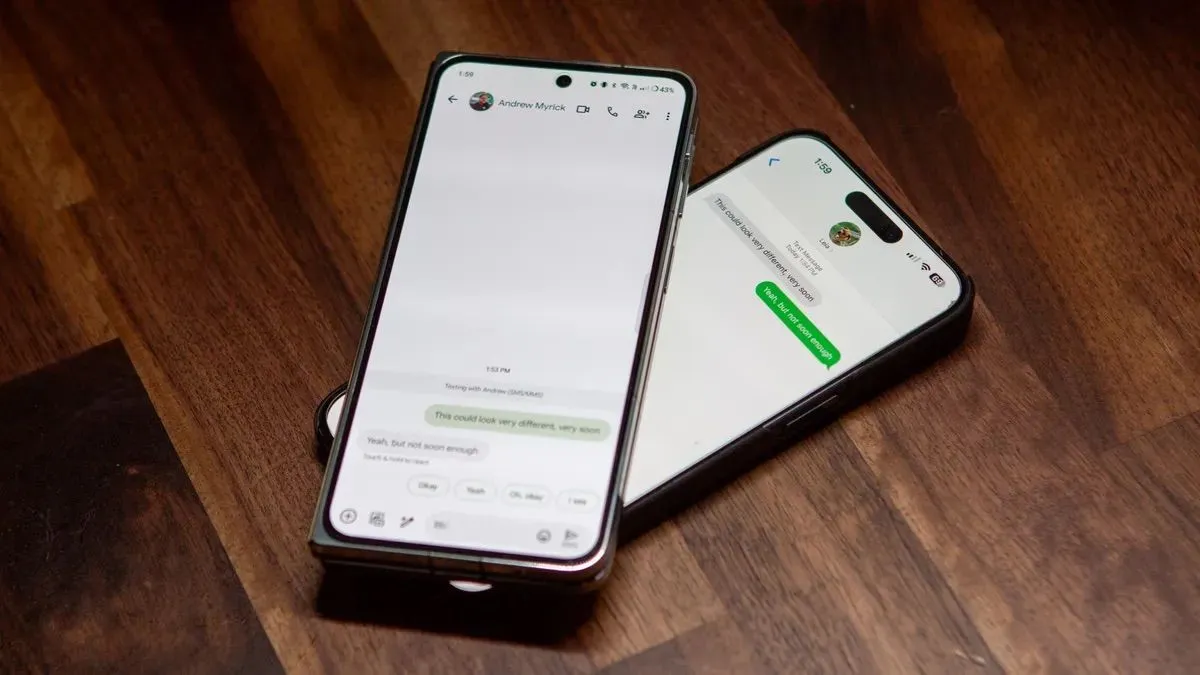
The GSM Association has announced an exciting update to its RCS (Rich Communication Services) standard, known as RCS Universal Profile 3.0. This update will introduce end-to-end encryption (E2EE) for messages, significantly enhancing the security of communications between users. With this new feature, messaging experiences will closely resemble those found in Google Messages, ensuring that texts and media exchanged between parties remain private and secure.
In a significant development, Apple has confirmed that it will implement end-to-end encryption for its RCS support on iOS. This move aims to improve communication security between iPhones and Android devices. Although Apple rolled out RCS support for text messaging with Android through iOS 18 last year, the initial implementation lacked this crucial encryption feature. As of March 14, reports indicate that Apple is taking steps to enhance the security of its RCS messaging capabilities.
According to a press release from the GSMA, the upcoming RCS update will roll out end-to-end encryption measures for RCS messages. Tom Van Pelt, the GSMA's technical director, emphasized that this update will ensure that messages and files remain confidential between the parties involved. He stated that the RCS standard will be the first large-scale messaging service to support interoperable E2EE across different providers’ client implementations.
The GSMA's RCS Universal Profile 3.0 update is not only focused on providing enhanced security for messages. It also aims to protect users against fraud and scams. The Association reassured users that it will continue to support essential functions between iOS and Android, such as group messaging, high-resolution media sharing, read receipts, and typing indicators. Importantly, this update means that iPhones will finally be able to send encrypted texts to Android devices, bridging a significant communication gap.
Shane Bauer, an Apple spokesperson, informed The Verge that the company intends to introduce support for end-to-end encrypted RCS messages across various platforms, including iOS, iPadOS, macOS, and watchOS, in future software updates. Apple has been a strong advocate for E2EE in RCS and has collaborated with the GSMA, mobile operators, device manufacturers, and technology providers to push for this crucial security enhancement.
There is a long-standing history of Google urging Apple to adopt RCS support, aiming to improve communication between Android and iPhone users. Amid a European Union investigation regarding whether iMessage fell under Gatekeeper status, Apple announced its decision to implement RCS. The introduction of RCS support in iOS 18 nearly a year later enhanced media sharing capabilities, aligning with many of the features outlined in the GSMA press release. However, the initial rollout notably lacked the vital encryption feature.
It's important to note that the original RCS standard did not include end-to-end encryption. Google took the initiative to add this essential security feature for user messages. While Apple focused on collaborating with the GSMA and other companies to bring E2EE to the RCS standard, it did not work directly with Google on encryption. As Apple prepares to implement this security measure for its users, the timeline for its rollout remains uncertain.
In conclusion, the upcoming RCS Universal Profile 3.0 update signifies an important step forward in messaging security, with Apple and the GSMA leading the charge towards a more secure communication landscape for both iOS and Android users.